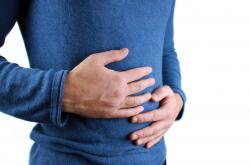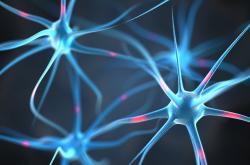Bowel Disorders And Tiredness
Poor bowel health causes tiredness. Learn how bowel conditions lead to fatigue and find out more about the range of treatment options.

The bowel is a crucial organ in the body. The old Chinese saying ‘death begins in the colon’ has turned out to have a lot of truth in it. Not only does our intestinal tract helps us absorb the correct balance of nutrients, it also keeps toxins out of the body. That is, if the bowel is working correctly. If it is not, the body eventually becomes malnourished and toxic. From there, it’s a short step to becoming severely fatigued.
Bowel conditions are usually reversible, though this may take time, effort and perseverance. Diet and lifestyle are two crucial areas to focus on. Each specific condition has slightly different dietary requirements, but there are general things to avoid:
- Antibiotics – although these have made a great difference to our lives, there has been a price to pay. Beside the bad bacteria, they also kill off the good bacteria in the intestinal tract, making it harder to absorb food and becoming more prone to yeast infections. Take antibiotics only when necessary, but balance them with a probiotic to encourage the growth of good bacteria.
- Sugar and fast-acting carbohydrates – these feed any infections, lower resistance generally, and contribute to blood sugar spikes, which cause tiredness.
- Alcohol – much of the content of most alcohol is sugar and some yeast, both of which can provoke Candida and other gut disorders.
- Processed foods and food additives – these contain all sorts of chemicals, some of which are harmful to the body. This means they can produce an allergic reaction (which will put an added stress on the adrenal glands) or a toxic reaction (which will stress the liver).
Most disorders, and bowel disorders are no exception, are triggered or worsened by stress, so it may be important to make changes to your lifestyle to reduce or eliminate stress. [Please seeDealing with stress and fatiguefor suggestions as to how to go about doing this.]
What specific bowel disorders cause tiredness?
The following specific diseases of the intestinal tract are known to increase fatigue:
IBS (Irritable Bowel Syndrome)
IBS is a chronic gastro-intestinal disorder that usually begins in adolescence or early adulthood. It’s estimated that there are 30 million sufferers in the United States alone, the majority of them women. It often runs in the families. Major symptoms of IBS are alternating constipation and diarrhea, gas, bloating, cramps and nausea. However, the effects of this condition are not confined to the bowel alone. They permeate the whole body and include: chronic tiredness, muscle pain, urinary tract infections, headache, bad taste in the mouth, poor sleeping and for women, painful sexual intercourse.
There is no conclusive laboratory test for IBS, so the diagnosis is made by ruling out more serious intestinal conditions. Some approaches to treating IBS favor splitting the syndrome into three parts:
Diarrhea-predominant form
This is usually associated with food intolerance, inflammatory substances in the intestinal tract and lactose intolerance. It may be helped by: eliminating food allergens and simple sugars and adding adequate dietary fiber and nutritional supplementation (L-glutamine, zinc, pantothenic acid and others).
Constipation-predominant form
This is associated with inadequate fiber intake, less fluid than needed, and irregular or inadequate exercise. It may be overcome by: introducing hypoallergenic fiber into the diet, taking more fluids and more exercise, supplementing with Vitamin C and Magnesium.
Pain/Gas/Bloating- predominant form
This is associated with inadequate secretions of digestive enzymes, changes in intestinal bacteria (dysbiosis) and eating fermentable carbohydrates. It will be helped by the elimination of fermentable carbohydrates from the diet, addition of friendly gut bacteria and avoiding dairy products if sensitive to them.
Malabsorption and leaky gut syndrome
In this syndrome, the lining of the intestinal tract becomes too permeable, allowing bacterial fragments or undigested food residue to cross into the blood stream (leaky gut). In addition, the vitamins and minerals, which should be carried across this wall by a process called active transport, aren’t able to cross (malabsorption). Some studies suggest that many people with chronic fatigue syndrome have leaky gut, or increased intestinal permeability.
The treatment of this syndrome is aimed at:
- Repairing the damaged intestinal lining
- Improving digestive enzyme activity
- Reducing the load of irritants e.g. drugs (particularly anti-inflammatory drugs) chemicals, allergens
Some of the nutrients which are helpful in overcoming the syndrome include: L-Glutamine, Gamma-linolenic acid (GLA), butyric acid, antioxidant nutrients, HCL, gamma-oryzanol, soluable plant-fiber, Lactobacillus acidophilus, Gingko biloba, plant enzymes. The importance of drinking enough water cannot be over-stressed.
Dysbiosis of the gut
Dysbiosis overlaps some of the issues of IBS and Candida. There are four forms of it:
- Putrefactive – the gut microbes convert food into toxin
- Fermentation excess – Sugars and carbohydrates convert into bacterial fermentation
- Deficiency – normal bacteria are depleted making digestion difficult
- Sensitization - this can lead to inflammatory diseases such as lupus, thyroiditis and some forms of arthritis.
Candida
Candida is type of yeast. It is commonly found on mucous membranes of the body. It becomes problematic when it comes to Candida overgrowth. This happens when the balance of good/bad bacteria is disrupted and Candida is allowed to excessively multiply.
Please, seeCandida and fatiguefor more details on this condition.















Leave a comment